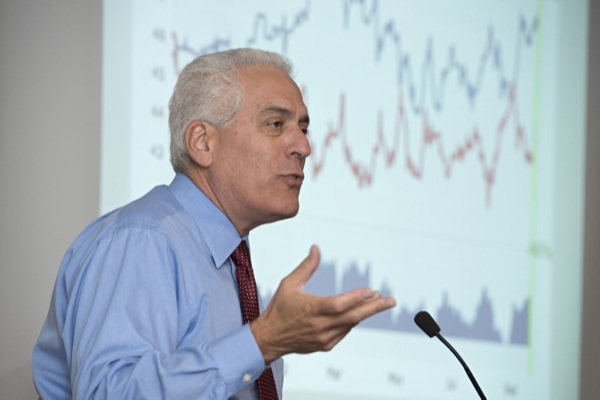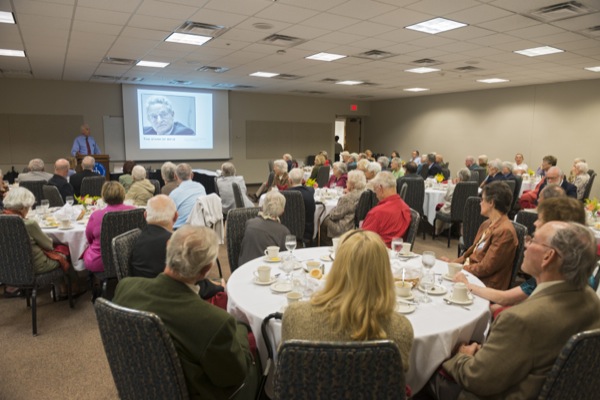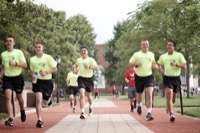


UDARF luncheon
Begleiter talks political campaign coverage with retired faculty
9:40 a.m., Oct. 10, 2012--With the Nov. 6 election just weeks away, Ralph Begleiter addressed some of the driving forces in this year’s political races during a University of Delaware Association of Retired Faculty luncheon held Tuesday, Oct. 2, in Clayton Hall.
Begleiter, director of UD’s Center for Political Communication and moderator of the National Agenda “Road to the Presidency” speaker series, said the biggest factors in the 2012 elections include voter use of information technology and the unlimited financial contributions being made by well-heeled donors to both political parties.
People Stories
'Resilience Engineering'
Reviresco June run
“The stars of the race are not the politicians, but the big donors like George Soros and Sheldon Adelson,” Begleiter said. “They are stars due to the U.S. Supreme Court’s 2010 Citizens United decision. Because of that ruling, campaign contributions are virtually unlimited, and each side is expected to spend in excess of $1 billion on the race for the presidency.”
Soros, the billionaire investor, recently donated $1 million to the Democratic Party’s campaign chest while Adelson, the casino billionaire, has donated $35 million to Republican candidates.
The biggest winners, Begleiter said, may not be the politicians but the owners of local television news outlets who make millions from political campaign ads.
“There is enormous opposition to campaign spending limits by owners of local television stations who make a fortune on spending for ads,” Begleiter said. “They spend hundreds of millions of dollars lobbying against campaign reform.”
While unlimited campaign contributions are certainly affecting the way both parties run their campaigns, voters too have changed the ways that they follow and participate in the political process, Begleiter said.
“Eighty percent of Americans get their political news from smart phones, and one-third of the electorate say they have not watched the campaigns on television,” Begleiter said. “Eighty-three percent of mobile device users are registered voters, and one quarter of campaign donors rely on phone information.”
Joining smart phones as major players in delivering political information and opinions are electronic tablets such as the Apple iPad, the Amazon Kindle and the Barnes and Noble Nook, Begleiter said.
“Eighty percent of eligible voters go online everyday,” Begleiter said. “Fifty percent of voters say viewing candidates online influences their political decisions, and even the voting booths are now using digital technology.”
Begleiter also mentioned the Real Clear Politics website, which projects the political fortunes of each party based on any number of polls taken across the country.
Viewers who do get their political news on television often tend to treat these events more like sporting contests than a part of the political process, Begleiter said.
“When their side comes on, they cheer, but when the opposite team comes on they might get up and shake their fist. We’ve turned news television into sports television. We shouldn’t be treating newscasts with a good guy-bad guy approach.”
First State voters have the opportunity to hear the views of their candidates in person, thanks to the Delaware Debates programs to be hosted by UD in Mitchell Hall.
“The Oct. 16 debate will feature consecutive debates among candidates for the U.S. Senate and the U.S. House of Representatives. On Wednesday, Oct. 17, candidates for lieutenant governor and governor also will debate,” Begleiter said. “I hope people here feel just a little tinge of pride that we are going to be on C-Span.”
Delaware Debates 2012 is co-hosted by the Center for Political Communication and Delaware First Media, and supported by AARP Delaware and American Cancer Society Cancer Action Network.
Article by Jerry Rhodes
Photos by Evan Krape









